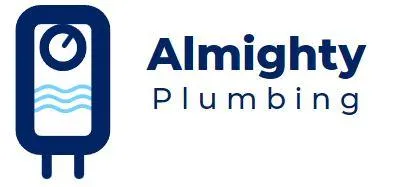Types of Water Heaters: Which One is Best for Raleigh Homes?
If you're thinking about upgrading your water heater, the abundance of options can make the decision-making process overwhelming. With traditional tanks, solar units, and tankless models available, each offering different levels of energy efficiency and hot water capacity, it's essential to have a comprehensive understanding of each type. Our guide is here to assist you in making an informed decision that aligns with the specific needs of your family. By delving into the detailed review of each water heater type that we provide, you will gain a thorough understanding of the advantages and disadvantages associated with each option. Armed with this knowledge, you can confidently select the perfect water heater for your home.

Traditional Storage Tank Water Heaters
Tank-style water heaters are a widely accepted and effective option for heating and storing water. They are equipped with insulated tanks and use various energy sources such as gas, electric, or oil to heat the water. This ensures that hot water is readily available at all times, allowing for convenient use with just the turn of a tap. Whether you require a constant supply of hot water for daily activities or occasional use, tank-style water heaters offer an efficient solution.
Pros:
Tank-style water heaters are an excellent choice for individuals seeking a more budget-friendly option. These appliances are known for their relatively lower upfront costs when compared to other types of water heaters.
Tank water heaters often come with longer warranty periods, providing added protection and peace of mind.
Another advantage is the relatively simple maintenance. While periodic maintenance is recommended to ensure optimal performance and extend the lifespan of the tank, it typically involves flushing the tank to remove any sediment buildup. This maintenance can generally be performed by the homeowner or a professional technician.
Cons:
One major drawback of traditional water heaters is their high operating expenses. These types of heaters are notorious for their lower energy efficiency, which translates to higher costs in the long run.
The limited size of the tank directly impacts the quantity of hot water that can be stored and used, resulting in potential shortages during high demand periods
The risk of water damage can be present if there is a leak or failure in the tank, which has the potential to cause extensive damage to the surrounding area.

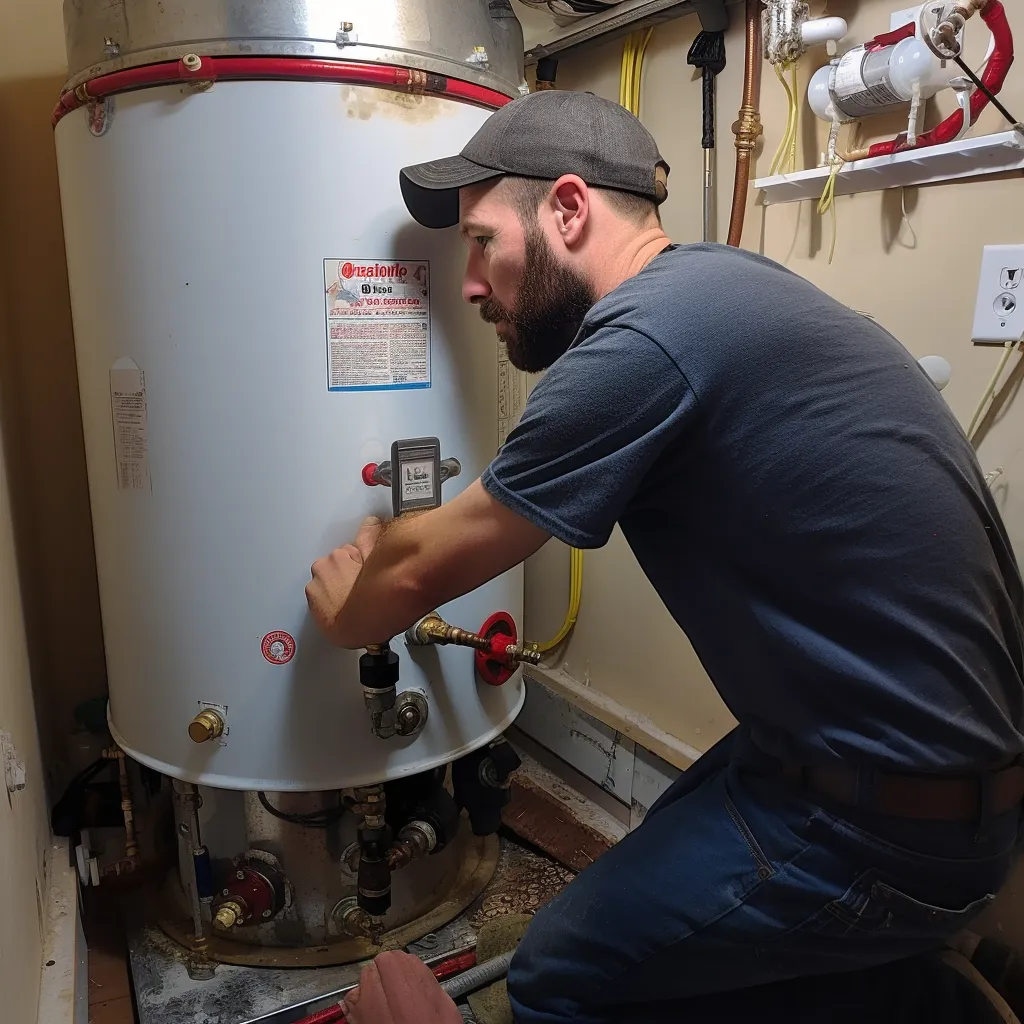
Tankless Water Heaters
Tankless water heaters have revolutionized the way we heat water in our homes. Unlike conventional tank-style water heaters, which store and constantly heat water, tankless units operate by heating water on demand. This energy-efficient design not only saves you money on your utility bills but also helps reduce your carbon footprint.
Pros:
One of the key advantages of tankless water heaters is their space-saving nature. Traditional water heaters take up a significant amount of room with their large tanks, which can be particularly challenging for homeowners with limited space. In contrast, tankless units are compact and can be easily mounted on a wall, freeing up valuable space in your home.
While the upfront cost of a tankless water heater may be higher compared to a traditional unit, the long-term savings on energy bills more than make up for it. The efficiency of tankless units ensures that you only heat the water you need, when you need it, reducing unnecessary energy consumption. As a result, you can enjoy hot water whenever you want, without worrying about draining your wallet.
In addition to their cost-saving benefits, tankless water heaters also offer a more eco-friendly solution. By eliminating the need to heat and store water continuously, these units help conserve energy and reduce greenhouse gas emissions. This not only benefits the environment but also contributes to a more sustainable future.
Compared to traditional water heaters that have a limited lifespan, tankless water heaters are built to last.
Cons:
Despite the numerous benefits they offer, it is important to note that tankless water heaters come with a higher initial cost when compared to traditional water heaters. However, this initial investment is often offset by the long-term savings and advantages they provide.
Venting complexities in small spaces can be quite challenging. Limited space and confined areas can make it difficult to ensure proper ventilation and airflow.
Limited capacity for high-demand applications.
Heat Pump Water Heaters
Heat pump water heaters are well-regarded for their exceptional efficiency and cost-effectiveness when it comes to heating water. These water heaters work by using a small compressor to draw heat from the surrounding air, a process that greatly reduces energy consumption. The result is a reliable and energy-efficient option that delivers hot water without causing a substantial dent in your utility bills. Furthermore, heat pump water heaters can operate seamlessly even during power outages thanks to their independence from electricity. With a heat pump water heater, you can enjoy the advantages of having a dependable and economical source of hot water at all times.
Pros:
Heat pump water heaters clearly take the lead in energy efficiency. These innovative devices offer exceptional efficiency, ultimately leading to significant savings on utility bills. In fact, compared to conventional water heaters, they can provide substantial reductions in energy consumption, resulting in decreased monthly expenses.
Renewable energy is a crucial aspect of sustainability and minimizing environmental impact. In the case of water heaters, there are innovative options available that harness renewable energy from the air, making them an excellent choice for those looking for more sustainable and environmentally friendly alternatives. These water heaters utilize the power of renewable energy, reducing reliance on fossil fuels and minimizing carbon emissions.
These innovative appliances are designed to operate independently of the electrical grid, ensuring a continuous supply of hot water even when the lights are out. Heat pump water heaters work by extracting heat from the surrounding air and transferring it to the water, making them highly energy-efficient and cost-effective. With their ability to operate during power outages, they are a reliable and convenient solution for homeowners who want to ensure they always have access to hot water, regardless of external circumstances.
Cons:
Heat pump water heaters typically come with a higher initial cost when compared to traditional water heaters.
Due to their specific design, these water heaters may necessitate additional ventilation in order to function properly. Similarly, they may also require more space compared to standard water heaters. Therefore, it is crucial to allocate enough room during the installation process to accommodate these specific requirements.
Limited capacity is one drawback that may be associated with heat pump water heaters. Due to this limitation, there may be a reduced availability of hot water for each usage.
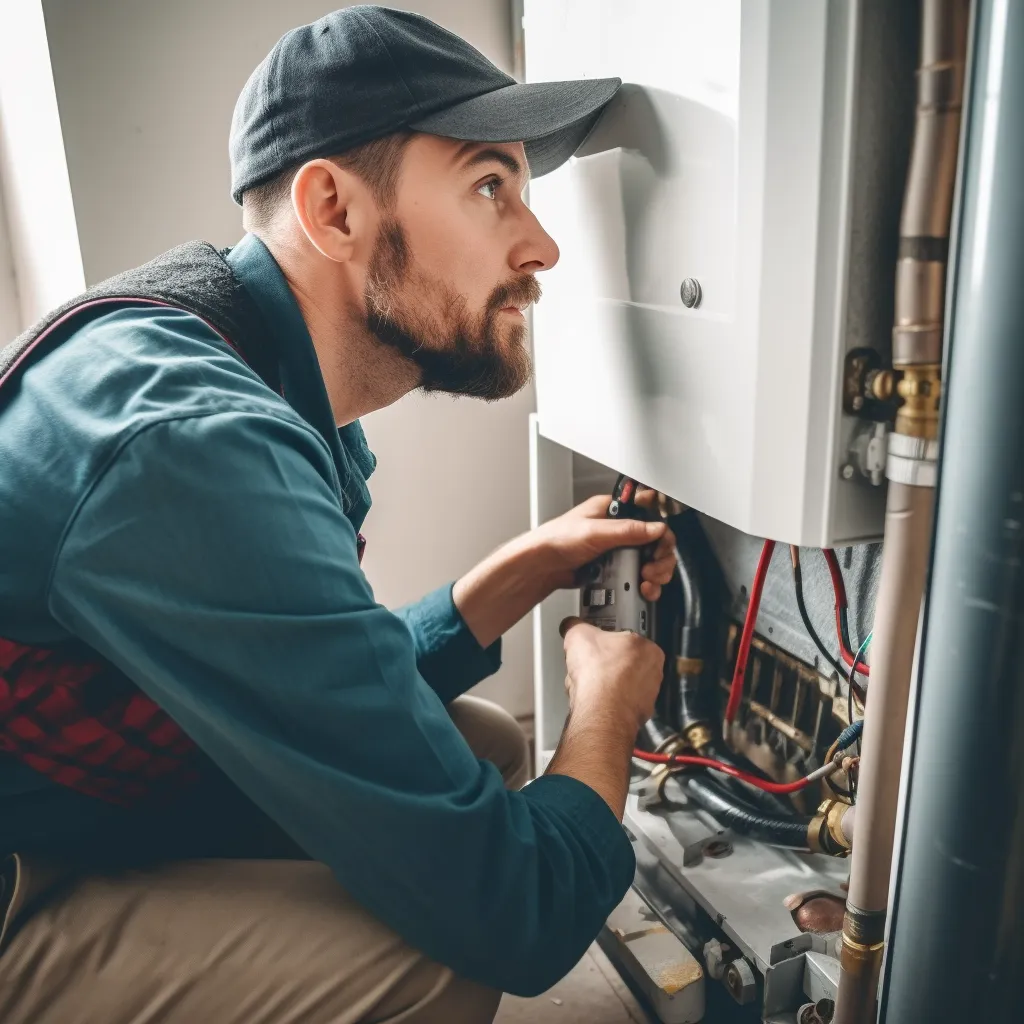
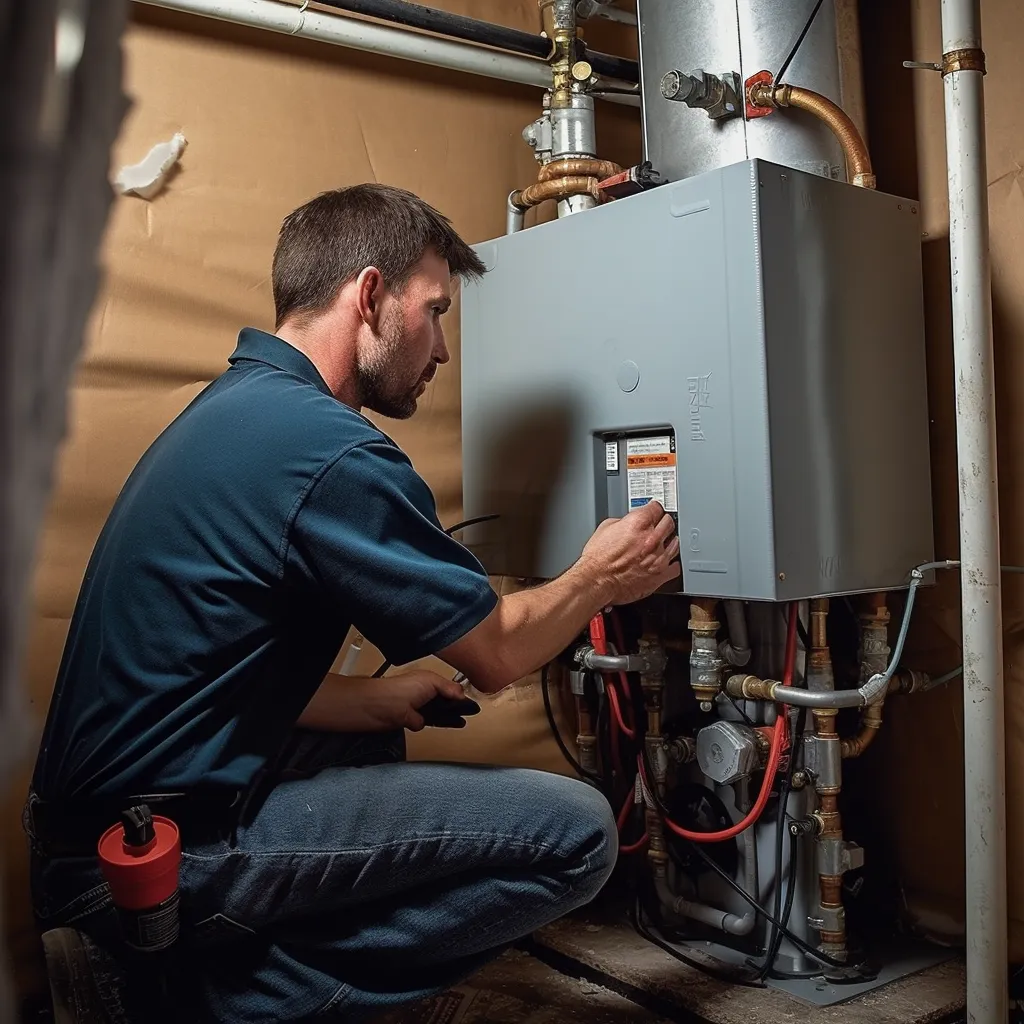
Heat Pump Hybrid Water Heaters
Heat pump hybrid water heaters are a revolutionary innovation that combines the advantages of conventional storage tank water heaters and heat pump systems. This unique blend of technologies results in a highly efficient and cost-effective solution for heating water. These hybrid water heaters offer exceptional performance and considerable energy savings, surpassing traditional models.
Pros:
Compared to conventional water heaters, heat pump hybrids operate with significantly lower energy consumption. By extracting heat from the surrounding air and transferring it to the water, they use less electricity to generate hot water. This translates into lower operating costs and substantial savings on utility bills.
The superior performance of heat pump hybrids can be attributed to their ability to utilize thermal energy from the surrounding air. By utilizing the existing heat in the atmosphere, these appliances can generate hot water even in colder climates, making them suitable for various geographic locations.
Hot water availability during power outages.
Longer lifespan compared to traditional storage tank heaters.
Cons:
Higher initial cost compared to conventional storage water heaters.
Potential ventilation and space requirements that may pose installation challenges.
Limited capacity means there is only a certain amount of hot water that can be used at a given time. This limitation results in a finite supply of hot water available for every use.
There is a potential risk of water damage in the event of a tank failure or leakage.
Solar Powered Water Heaters
Solar-powered water heaters are a great way to reduce monthly utility expenses and make use of renewable energy. There are two primary types of solar water heating systems: active and passive. Both of these systems operate by utilizing the sun's energy to heat water, providing a simple and cost-efficient way to save money. By choosing a solar-powered water heater, not only can you enjoy lower energy bills, but you can also contribute to a more sustainable and eco-friendly method of heating water.
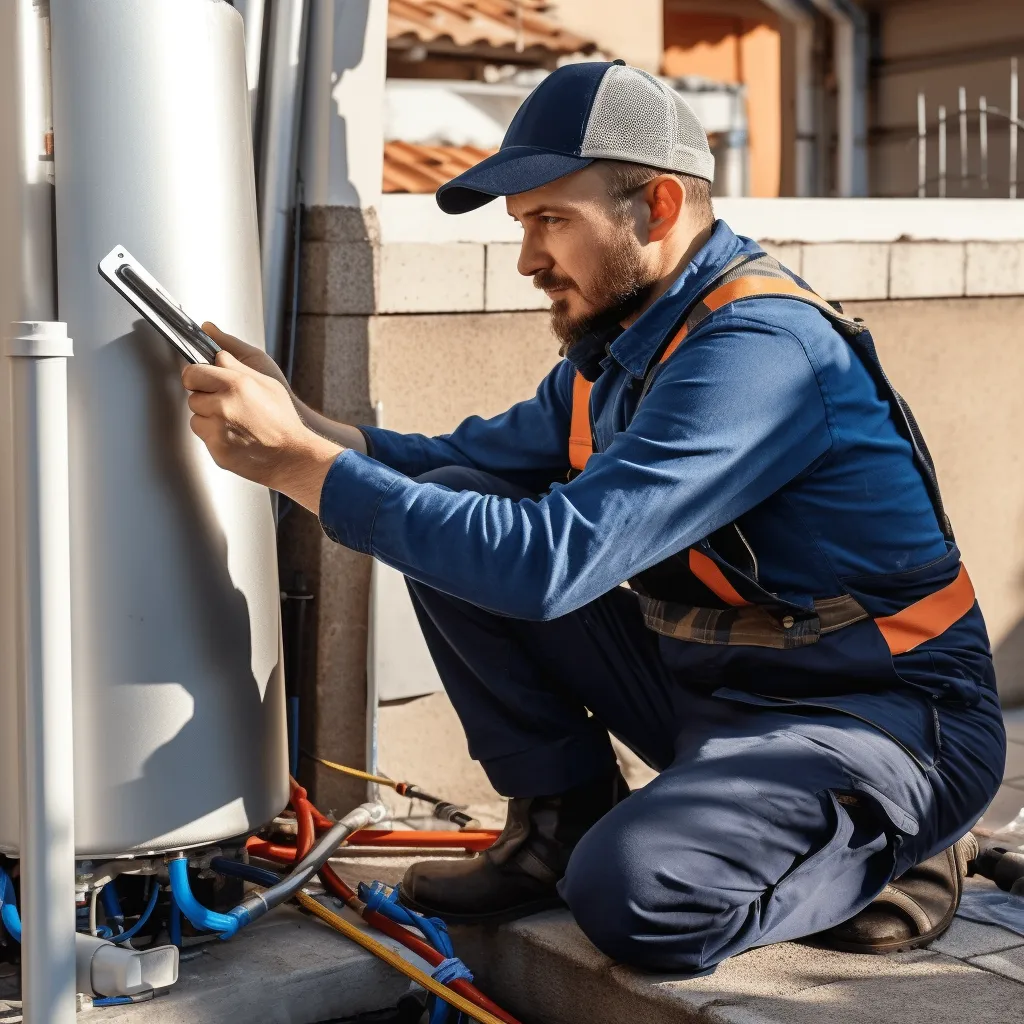
Active Systems:
Active solar-powered water heaters are a highly efficient and effective way to generate ample hot water for your household needs. These systems use pumps to transfer the hot fluid collected by the solar collectors to a storage tank for future use. By utilizing active systems, you can optimize the collection of solar energy and ensure a steady and reliable supply of hot water. Thanks to their efficiency and ability to generate significant amounts of hot water, active solar-powered water heaters are an excellent choice for those seeking to reduce their energy consumption and dependence on traditional heating methods.
Passive Systems:
Passive solar water heaters use natural convection to move heated fluid from the collectors to a storage tank, using solar energy to heat the water. One of the key advantages of these systems is their affordability, both in terms of installation and ongoing maintenance. Although they may not deliver as much hot water as active systems, passive solar water heaters are a sustainable and economical choice for utilizing solar power to meet your hot water requirements.
Pros:
High efficiency, resulting in cost savings on energy bills.
Utilization of renewable energy from the sun.
Longer lifespan compared to traditional water heaters.
Cons:
Higher initial cost compared to traditional storage tank heaters.
Additional space and equipment requirements may complicate installation.
One important consideration when it comes to solar panels is the potential risk of water damage in the event that they become faulty or damaged. If water manages to penetrate the panels, it can potentially cause significant harm to the electrical components, leading to a complete breakdown of the system

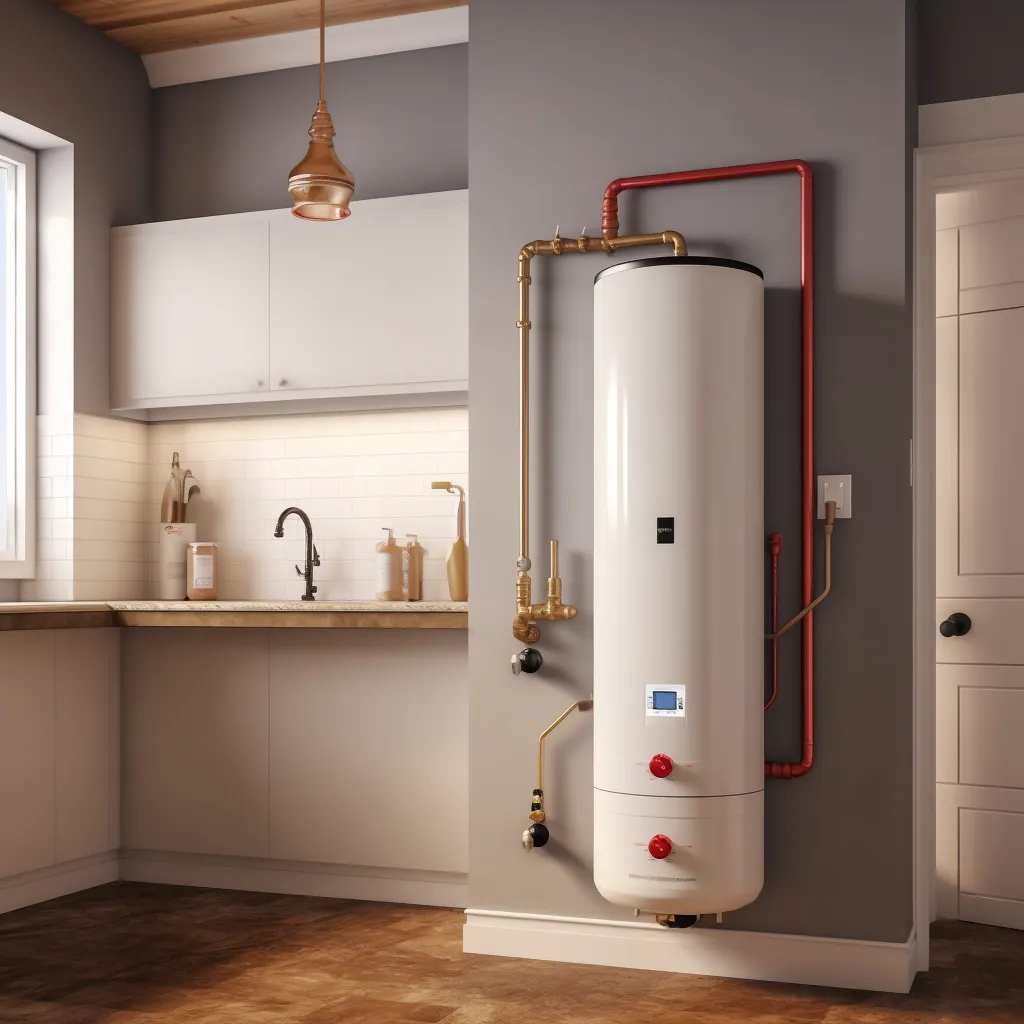
Point-of-Use Water Heaters
Point-of-use water heaters are an excellent choice for individuals looking for a space-saving and energy-efficient solution to meet their hot water needs. These compact systems provide hot water instantly and directly at the designated point of use, eliminating the hassle of long pipe runs and reducing heat loss. With their small size, point-of-use water heaters are ideal for tight spaces or those who want to avoid the drawbacks and expenses of traditional storage tank water heaters. Say goodbye to unnecessary costs and inefficiencies - make the switch to a point-of-use water heater today.
Pros:
High energy efficiency, resulting in lower monthly utility expenses.
The compact size of our product ensures effortless installation and hassle-free maintenance even in limited spaces.
Longer lifespan compared to storage tank heaters.
Cons:
Higher initial cost and potential need for extra ventilation and installation space.
Reduced hot water capacity can result in a restricted amount of hot water available for each use.
Higher risk of water damage due to tank failure or leaks.
Water Heaters With Hydronic Boilers
Water heaters with hydronic boilers are a popular choice for homeowners looking to efficiently heat their homes and supply hot water. These systems combine the functionality of a water heater and a boiler, making them versatile and energy-efficient. A water heater with a hydronic boiler works by heating water and then distributing it through a network of pipes to radiators, baseboard heaters, or in-floor heating systems. This method of heating, known as hydronic heating, is known for its ability to provide consistent and comfortable heat throughout a home.
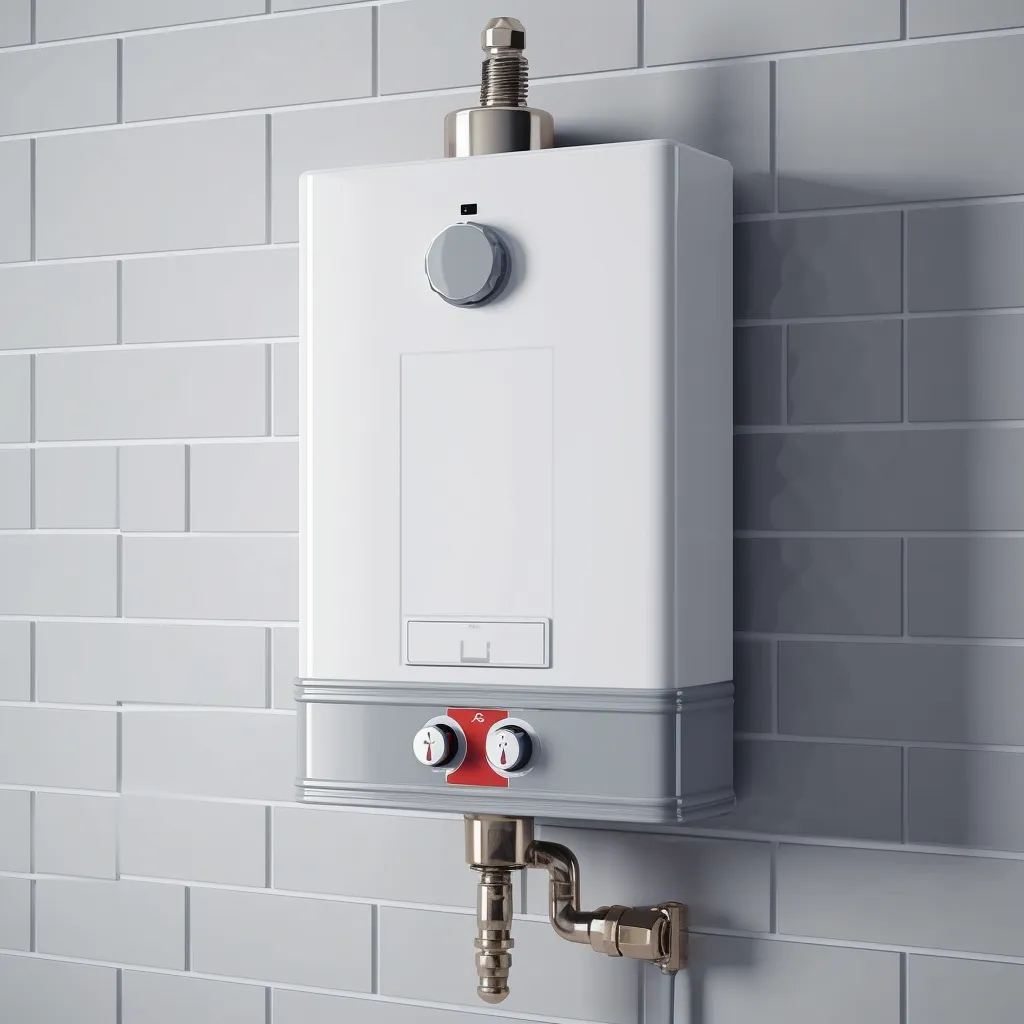
Pros:
One of the major advantages of water heaters with hydronic boilers is their energy efficiency. Hydronic heating systems are highly efficient because they distribute heat using water, which is a better conductor of heat than air. This means that less energy is lost in the process, resulting in lower energy bills for homeowners.
Another benefit of these systems is their versatility. Water heaters with hydronic boilers can be used for both space heating and domestic hot water supply. This means that homeowners only need to invest in one system to meet their heating and hot water needs, saving both money and space.
These systems can be easily integrated with other renewable energy sources, such as solar panels or geothermal systems. This allows homeowners to further reduce their carbon footprint and save on energy costs.
Water heaters with hydronic boilers also offer a longer lifespan compared to traditional water heaters. With proper maintenance, these systems can last for up to 20 years or more, providing homeowners with reliable and consistent heating for a long time.
Cons:
Although initial costs may be higher compared to traditional storage models, the advantages of investing in newer storage solutions outweigh this consideration in the long run.
The limited capacity of this hot water system means that it can provide less hot water for each use.
Possibility of noise generation during operation.
There is a possibility that you may be ineligible for specific utility rebates or incentives.

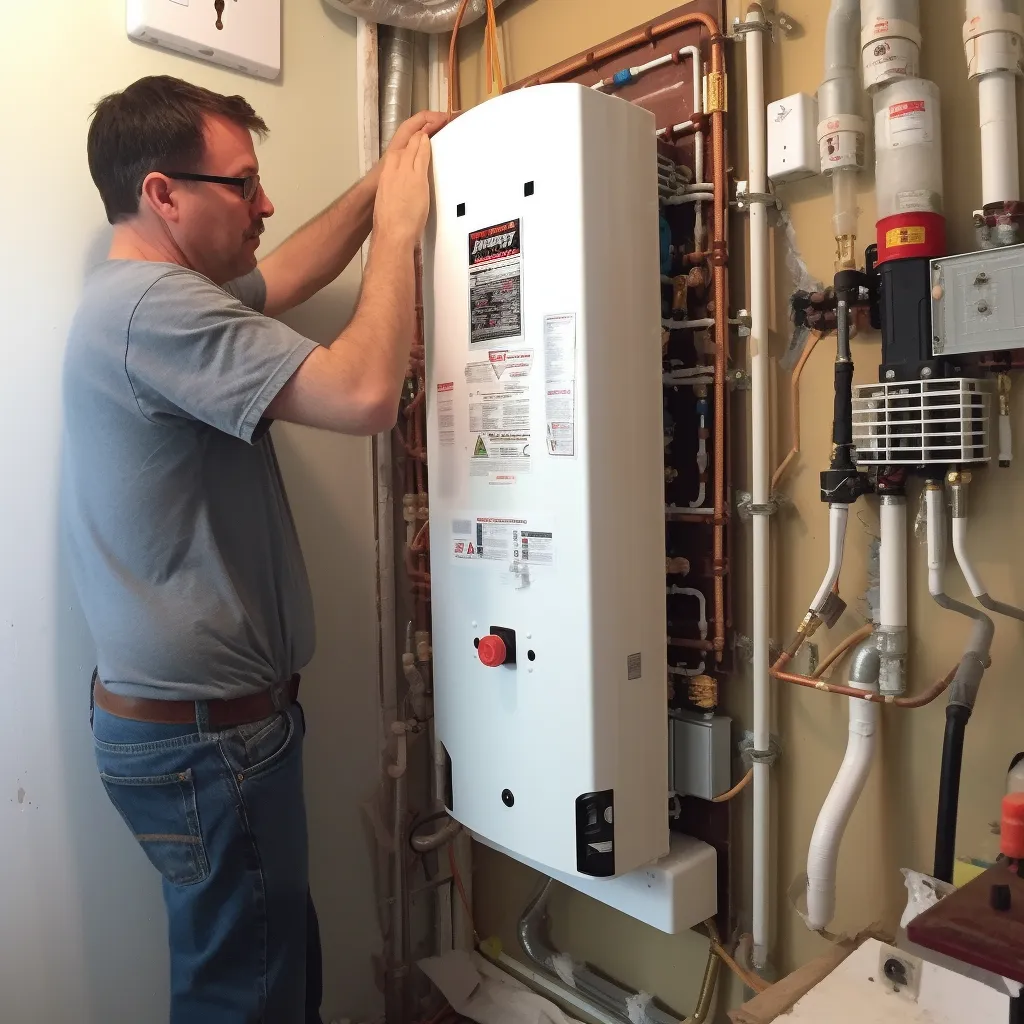
Smart Water Heaters
Experience the next level in water heating technology with smart water heaters, revolutionizing hot water production for optimal efficiency. Equipped with state-of-the-art Wi-Fi enabled thermostats, these advanced systems allow you to effortlessly manage your hot water consumption and expenses from any location. By harnessing the power of your smartphone, you can take full control of temperature settings and personalize them based on your individual preferences. Upgrade today and discover the convenience and savings that smart water heaters have to offer.
Pros:
Smart water heaters utilize intelligent technology to optimize water heating, ensuring that you always have hot water when you need it, while also saving energy and reducing utility bills.
These intelligent devices can be connected to your home's Wi-Fi network, allowing you to monitor and control your water heater remotely from your smartphone or tablet.
One of the key benefits of a smart water heater is its ability to learn and adapt to your usage patterns. Using advanced algorithms, these devices analyze your water consumption habits and automatically adjust heating schedules to match your needs. This not only saves energy but also ensures that you have hot water readily available without any manual intervention.
In addition to optimizing energy usage, smart water heaters provide valuable insights into your water consumption. They can track your usage history and provide real-time data on energy usage, allowing you to monitor your water heating costs and make adjustments as needed. This data can be invaluable in identifying potential water leaks or inefficiencies that may be costing you money.
The convenience of remote control should not be overlooked. With a smart water heater, you can easily adjust settings, turn on or off the heating element, or even create custom schedules directly from your phone. This means that you no longer have to waste energy by continuously keeping the water hot when it's not needed, or come home to a cold shower if you forgot to turn on the water heater.
Cons:
Higher cost compared to traditional storage water heaters.
Certain utility rebates or incentives may not be applicable in all cases.
In order to ensure compatibility with newer devices, it may be necessary to implement additional software updates. These updates are necessary to ensure that the software can effectively communicate and function with the latest models and technologies.
Potential security risks if the Wi-Fi connection is not secure

Condensing Water Heaters
Condensing water heaters are an ideal combination of tankless and traditional storage tank water heaters, providing the advantages of both types. These models are equipped with cutting-edge technology that allows them to extract heat from exhaust gases, resulting in higher efficiency and cost savings. By harnessing and utilizing this heat that would otherwise go to waste, condensing water heaters deliver superior performance and significantly improved energy efficiency.
Pros:
The primary benefit of condensing water heaters is their high efficiency. By reclaiming heat that would otherwise be wasted, these systems can achieve efficiencies of up to 98%. This means that almost all of the energy used to heat the water is effectively utilized, resulting in significantly lower energy consumption and reduced utility bills.
They typically have a larger capacity than traditional water heaters, allowing for a greater volume of hot water to be produced. This can be especially beneficial in homes or businesses with high hot water demands.
Condensing water heaters are often more environmentally friendly than their counterparts. By using less energy, they contribute to the reduction of greenhouse gas emissions and promote sustainability.
Cons:
Higher initial cost.
Space and ventilation requirements.
Limited hot water capacity can be a frustrating issue for many households. When there is not enough hot water available, it can lead to discomfort and inconvenience.
How to choose the right water heater for your home

How to choose the right water heater for your home
In order to ensure an adequate supply of hot water without wasting energy or space, it is crucial to choose the right size water heater for your household. If you opt for a water heater that is too small, you may encounter issues with insufficient hot water. On the other hand, investing in an oversized unit can be costly and take up unnecessary space. To determine the ideal water heater size for your family's needs, it is important to consider your lifestyle and daily hot water usage. If you have a bigger family or engage in activities that require a high amount of hot water, such as frequent showers or laundry, a larger water heater may be necessary. Conversely, if you have a smaller household and do not utilize hot water as frequently, a smaller water heater may be sufficient. By carefully selecting the appropriate size, you can enjoy affordable home comfort and a consistent supply of hot water that meets your specific requirements. So, take the time to determine the best water heater size for your household, ensuring both efficiency and satisfaction.

When should you replace your water heater?
Knowing when to replace your water heater is crucial for ensuring a reliable and efficient supply of hot water in your home. There are several signs that indicate it may be time for a replacement:
Age: If your water heater is more than 10 years old, it may be time to consider getting a new one. Old water heaters are more prone to breakdowns and can be less energy-efficient.
Rust-colored water: If you notice rust-colored water coming out of your faucets, this could be a sign that your water heater is corroded on the inside. This issue can affect water quality and indicate that your water heater is nearing the end of its lifespan.
Leaks: Any signs of water leaking from your water heater should not be ignored. Leaks can indicate internal tank corrosion, which can lead to more significant problems if left unaddressed.
Strange noises: If you hear cracking, popping, or rumbling sounds coming from your water heater, it could be due to sediment buildup inside the tank. This buildup can reduce the efficiency and lifespan of the unit.
Inconsistent water temperature: If your water heater is not consistently delivering hot water, it may be a sign that the heating element or thermostat is malfunctioning. This issue can be costly to repair, and replacing the water heater may be a more cost-effective solution.
High energy bills: An aging water heater becomes less energy-efficient over time, leading to increased energy consumption and higher bills. If you've noticed a significant increase in your energy costs, your water heater may be the culprit.
Frequent repairs: If you find yourself constantly repairing your water heater, it may be a sign that it has reached the end of its useful life. Rather than spending money on repeated repairs, it may be more practical and cost-effective to invest in a new unit.
Investing in a new water heater may come with a substantial cost, but the advantages in terms of energy efficiency and dependable operation make it a valuable long-term investment. An experienced and licensed plumber can assess your individual requirements, suggest the most suitable size and type of water heater, and guarantee a proper installation that maximizes efficiency and lifespan.
Maintenance tips for water heater efficiency
It is crucial to prioritize regular maintenance for your water heater to avoid any potential problems and ensure optimal efficiency. By diligently following routine maintenance tasks, you can effectively sustain the smooth operation of your water heater while enjoying the benefits of cost-effective and dependable access to hot water.
Benefits of hiring a licensed plumber to replace your water heater
When it comes to replacing your water heater, hiring a licensed plumber can provide numerous benefits. While it may be tempting to tackle the project yourself or hire an unlicensed contractor to save money, the expertise and professionalism that a licensed plumber brings to the table cannot be matched. Here are a few key advantages of hiring a licensed plumber for your water heater replacement:
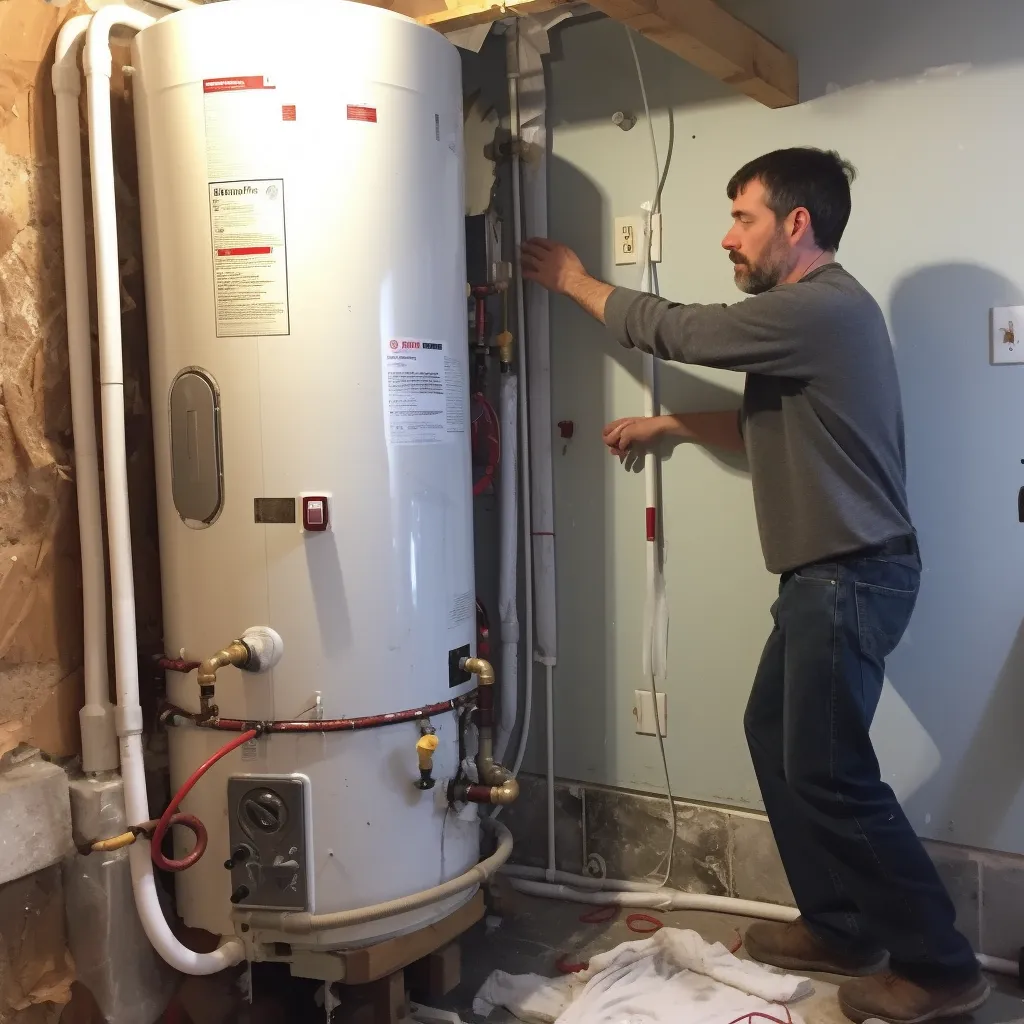
Quality Workmanship: Licensed plumbers have gone through extensive training and have acquired the necessary skills and knowledge to handle water heater replacements with precision and expertise. They are well-versed in the latest industry standards and technologies, ensuring that your new water heater is installed correctly and functions optimally.
Compliance with Building Codes: Plumbing systems are subject to strict building codes and regulations, and failure to comply with these requirements can result in safety hazards and legal issues. Hiring a licensed plumber guarantees that your water heater replacement will meet all the necessary building codes, ensuring the safety and legality of your installation.
Insurance Coverage: Licensed plumbers are typically insured, which means that you are protected in the event of any accidents or damages that occur during the water heater replacement process. This provides you with peace of mind knowing that you won't be held liable for any unexpected costs or injuries that may arise.
Warranty Coverage: When you hire a licensed plumber to replace your water heater, you can often benefit from manufacturer warranties on the equipment and guarantees on the workmanship. This means that if any issues arise after the installation, you can rely on the expertise of the plumber to address them promptly and efficiently, at no additional cost to you.
Time and Cost Efficiency: While hiring a licensed plumber may seem like an added expense, it can actually save you time and money in the long run. Licensed plumbers have the necessary tools, equipment, and experience to complete the job quickly and efficiently. They can also help you choose the right water heater for your specific needs, potentially saving you money on energy costs in the long term.
There are many advantages to hiring a licensed plumber for water heater replacement. Not only does it save you time, but it can also save you money in the long run. In addition, hiring a professional plumber ensures that you avoid potential issues that could arise from an improper installation.
Contact Us
GET IN FULL TOUCH
PHONE: (984) 223-8754
EMAIL:
david@waterheatersinraleigh.com
Almighty Plumbing
Raleigh, NC 27602
